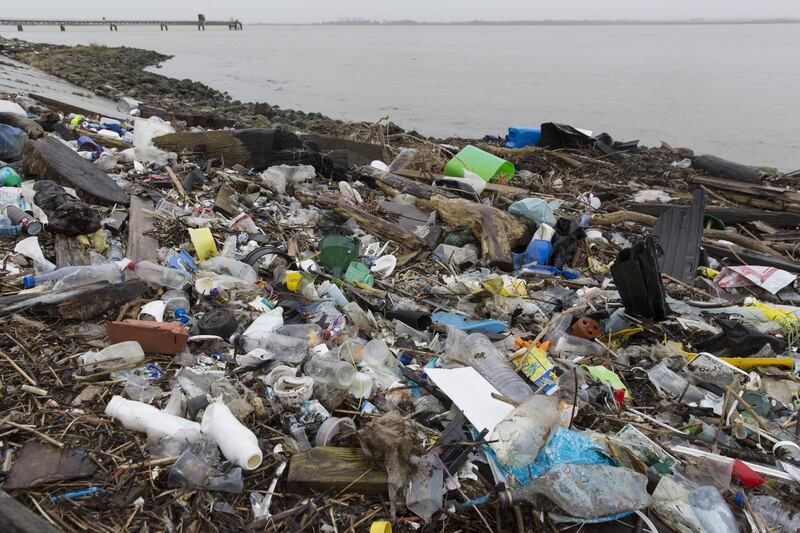Prime minister Theresa May will set out Britain's environmental agenda for the next 25 years on Thursday with plans to counter the growing problem of plastic pollution.
Launching her environment plan, the PM will set out her government's vision to improve the environment, outlining steps for a cleaner, greener Britain where avoidable plastic waste will be eliminated by the end of 2042.
To reach this goal, the government will extend the 5p carrier bag charge to all retailers in England. Since October 2015, nine billion fewer plastic bags have been used as a direct consequence of the charge.
The government will also work with supermarkets to encourage them to introduce plastic-free aisles in which all the food is loose.
Industry will also be encouraged to take more responsibility for the environmental impact of its products and make them easier to recycle. Mrs May's Conservative government will look at how the tax system or charges could reduce the amount of waste created.
There will also be measures to inject more funding into plastics innovation through the government’s £7 billion research and development pot.
It is estimated that 8.3 billion tonnes of plastic have been produced in the UK since the 1950s. Research indicates that this figure is likely to be 34 billion tonnes by 2050 without action to cut demand.
During its recent Great British Beach Clean Up drive, the Marine Conservation Society found 718 pieces of litter for every 100 metre stretch of beach surveyed, and of this rubbish from food and drink made up at least a fifth.
Mrs May, who is looking to relaunch her government’s agenda after a poor start to 2018, will say in a speech on Thursday: “We look back in horror at some of the damage done to our environment in the past and wonder how anyone could have thought that, for example, dumping toxic chemicals, untreated, into rivers was ever the right thing to do.
“In years to come, I think people will be shocked at how today we allow so much plastic to be produced needlessly. In the UK alone, the amount of single-use plastic wasted every year would fill 1,000 Royal Albert Halls.
“This plastic is ingested by dozens of species of marine mammals and over 100 species of seabirds, causing immense suffering to individual creatures and degrading vital habitats,” she will say . “One million birds, and over 100,000 other sea mammals and turtles die every year from eating and getting tangled in plastic waste. One in three fish caught in the English Channel contains pieces of plastic.
“This truly is one of the great environmental scourges of our time. Today, I can confirm that the UK will demonstrate global leadership. We must reduce the demand for plastic, reduce the number of plastics in circulation and improve our recycling rates. To tackle it we will take action at every stage of the production and consumption of plastic.”
Mrs May will say that the UK is “demonstrating global leadership [that] will also do more to help developing nations tackle pollution and reduce plastic waste, including through UK aid”.







